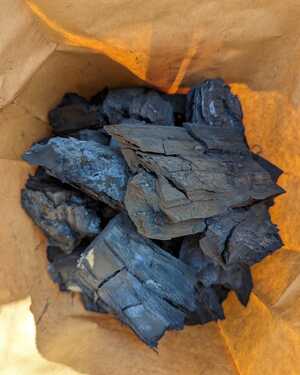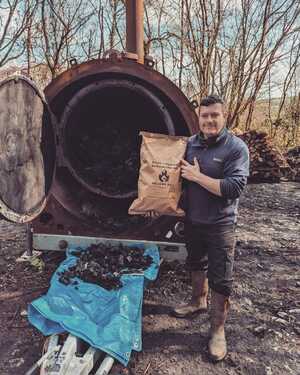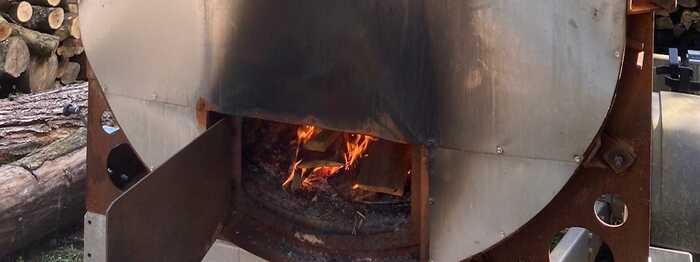
Charcoal & Biochar
Produced sustainably using environmentally friendly retort methods. Supports local woodland and hedgerow management.
Barbecue Charcoal
It is estimated that the UK currently uses more than 110,000 tonnes of BBQ charcoal every year, and astonishingly, approximately 95% of this is imported from countries such as Namibia, Nigeria and Paraguay.
To make charcoal, you need timber, and the way that it is sourced in these areas is often unsustainable, and unethical. Vast areas of tropical ecosystems such as rainforests, mangrove swamps and other endangered habitats are cut down to keep up with demand for the export market of charcoal.
It has been calculated that more than 3.28 billion tonnes of timber is needed to keep up with the annual demand in the EU. This roughly equates to 11 million hectares of forest every year (or almost half a football pitch per second). Putting that into context, England’s area is 13 million hectares... deforestation at an alarming rate.
Additionally, this bulky product may be doused in anti-inflammable chemicals to make it less volatile whilst being transported around the world on huge ships. Upon arrival, it’ll likely be doused in toxic petrochemicals to make it easier to light, before being bagged up, and sold cheaply in supermarkets and on the typical garage forecourt.
But here is the good news!
UK-made lumpwood charcoal on the other hand, is a very different product. It is superior in quality and carbon content to that of the imported alternative, and requires no additives or accelerants to use. Importantly, it’s produced sustainably through the management of our native woodlands and hedgerows, often as a by-product of work such as coppicing, and hedge-laying, which helps improve biodiversity.
(facts/info sourced from the National Coppice Federation website/ UK charcoal page in conjunction with the info on the back of my charcoal bags)

Introducing Dragon Hill Charcoal
‘Dragon Hill Charcoal’ is made using a highly efficient retort method, which recycles many of the outputted gases produced, to self-perpetuate the firing process. This environmentally friendly process creates a product that is 100% pure and natural.
Dragon Hill Charcoal is offered in ’single species’ varieties (Oak, Ash, Beech, Alder, Sweet Chestnut, Hazel etc), or a blend of several species. Each variety offers differing characteristics to your barbecuing experience, both in terms of flavour profiles and heat/burn. Whichever you choose, all Dragon Hill Charcoal:
- lights quickly and easily
- ready to cook on in 10-15 mins
- burns hot, and evenly without smoke
- can be topped up anytime during cooking
- 100% additive free – no nasty chemicals used whatsoever
At Dragon Hill Charcoal, we believe in buying local, and reducing unnecessary transport wherever possible.
Please get in touch for current pricing and delivery options.
Biochar
Biochar is a term that describes any organic material that has been carbonised through the process of pyrolysis. Our biochar is a by-product of charcoal production. The ‘fines’ (i.e. material too small to qualify as BBQ charcoal), is sieved and graded, then bagged for sale as horticultural soil improver. The benefits of using Biochar are still being researched, but it is known to help lock nutrients into the soil, retain moisture, and aid aeration. Studies of the ‘Terra Preta’ soils of the Amazon reveal man-made charred organic material, which had improved the region's otherwise infertile soils. This dates back thousands of years.
Another key benefit of biochar is the ability to ‘lock’ carbon into the soil, for hundreds, if not thousands of years, thus sequestering carbon in an effort to fight climate change. This is because biochar is essentially pure carbon, which doesn’t biodegrade.
Get in Touch
For advice on Charcoal & Biochar or any of our other services, or for a free no obligation quote, speak to Robin.

